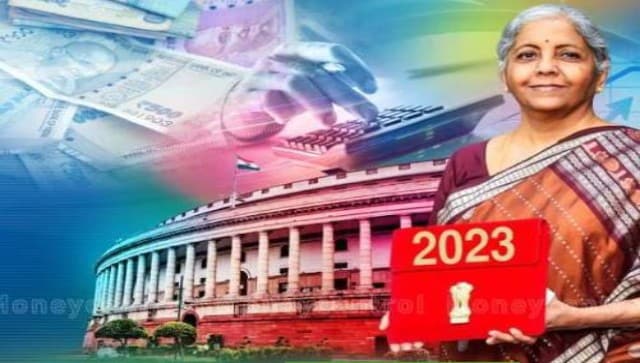Union Budget 2023-24: Why favourable policies for realty sector can assist in growth, economic sustainability
Rationalisation of capital gains tax on property is needed for a level playing field with other assets

Representational image. News 18
In a post-pandemic arena, unlike many other sectors, the Real Estate (RE) sector has rebounded strongly. However, key players in the RE sector, from developers to home buyers, are hoping for much-needed reforms in the Union Budget 2023, to propel this growth trajectory even further.
Direct Tax relief measures
Simply put, the expectations of home buyers can be categorised into three main buckets – enhancement of personal tax deductions, rationalisation of capital gains tax regime, and introduction of incentives.
Currently, the deduction for interest on housing loans is restricted to Rs 2 lakhs whereas the maximum deduction for the principal portion is capped at Rs 1.5 lakhs. Given the trend in rising prices in the RE sector, due to increasing input costs and interest rates, the Government may enhance the interest deduction to at least Rs 4 lakhs and introduce an altogether exclusive deduction of Rs 1.5 to Rs 2 lakhs for the principal portion of housing loans, to alleviate the pressure on the income of the home buyers.
Rationalization of capital gains tax on the property is needed to level the playing field with other assets and provide the impetus for the development of the RE sector. For instance, the holding period of listed shares to qualify as a long-term asset is one year with a rate of 10 percent, whereas the comparative holding period for the property is two years with double that rate at 20 percent. Even the capital gains exemption for the property is laden with monetary restrictions and a defined number of properties for re-investment.
Further, in joint development agreements, the landowner faces difficulty in the discharge of capital gains tax as consideration is received later when the property is sold to the home buyer by the developer. The Government may enact measures to address the above issues and provide the requisite capital gains tax relief to home buyers.
Lastly, the Government may introduce incentives to boost investment in the RE sector. This may include a 100 percent exemption for rental income up to Rs 3 lakhs and a re-introduction of the 100 percent tax holiday for developers of affordable housing projects. The benefits of these measures are bound to trickle down to the home buyers and encourage the growth of the RE sector.
GST relief measures
An increase in the threshold for affordable apartments (attracting GST at the rate of 1 percent) from the present limit of Rs 45 lakh can be considered, as the same was fixed in 2019 and needs a relook considering the surge in RE prices, specifically in big cities.
Presently, affordable apartment attracts GST at 1 percent and other than affordable at 5 percent. The taxability of residential apartments could be further categorized and the affordable may be exempted, other than affordable may be taxed at a minimal rate and a higher rate may be applied only on luxury apartments.
In case of cancellation of flats, claiming a refund from the department is the only option generally since the time limit to issue credit note gets expired. To safeguard the interest of the customer, the said time limit shall be linked with the date of cancellation instead of the invoice date and the same could lead to self-adjustment of tax by the developer.
It is imperative to define Development Rights (DR) under GST. Also, GST implications, including its valuation, in case of subsequent assignment of DR or leasehold rights along with superstructure or otherwise shall be clarified. Also, unconditional exemption on DR can be considered. In any case, one-third land abatement on the valuation of DR should be allowed akin to abatement provided in case of construction services provided by the developer to the landowner under area sharing arrangement.
Lowering the tax rates on inward supplies will provide relief. Presently, cement being major input in the total input cost to the developer is being taxed at 28 percent and other inputs are taxed at 18 percent.
Harpreet Singh is Partner, Indirect Tax, KPMG in India, and Naveen Gupta Partner, International Tax & Regulatory, KPMG in India. They tweet @KPMGIndia. Views expressed are personal.
Read all the Latest News, Trending News, Cricket News, Bollywood News,
India News and Entertainment News here. Follow us on Facebook, Twitter and Instagram.
also read

Budget 2023-24 Expectation: Simulate sustained consumer spending and positive value creation to spur real estate
Government must accord industry status to realty to enable it to access low-cost credit to build affordable homes

Budget 2023-24 Expectation: Government should increase access to housing by reducing cost of construction
Over the past few Budgets, the prioritisation of funding to urban development programmes, including the Smart Cities Mission, AMRUT, and Pradhan Mantri Awas Yojana, has significantly contributed to positive urban growth in India. The trend should continue this year as well

Budget 2023: Post-pandemic, real estate sector critical for larger economic landscape
Reducing GST burden for under-construction properties is a good way to kickstart a virtuous cycle to sustain housing demand


